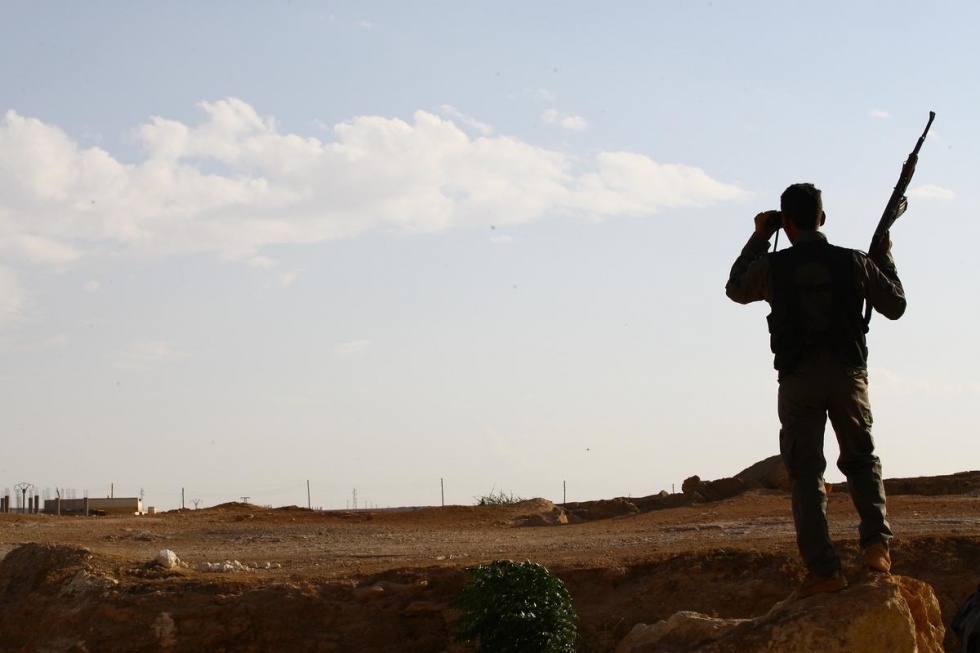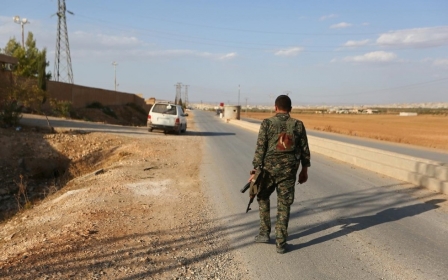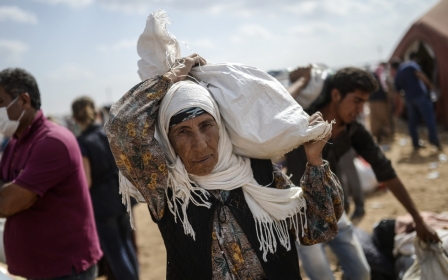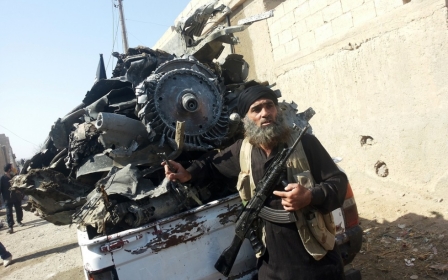Iraqi pro-government on Sunday repelled an Islamic State attack on a strategic town only 40 kilometres west of the capital Baghdad, security sources said.
The Iraqi forces, backed by military aircraft, managed to hold off an IS attack on Amriyat al-Fallujah at around 1:00 am local time (2200 GMT on Saturday), local police chief Aref al-Janabi told AFP.
"They attacked from two sides... The fighting lasted five hours," he said, adding that soldiers, policemen and Sunni tribesmen were fighting together to defend the town.
"Warplanes eventually engaged the insurgents and killed 15 of them," he said.
According to Janabi, the IS military leader in the nearby city of Fallujah - whom he named as Mullah Jassem Mohammed Hamad - was killed in the attack.
A military intelligence officer at the operations command for Anbar province, of which Amriyat al-Fallujah is part, also reported the IS leader's death.
It was not immediately clear which air force intervened, but French and US jets have carried out air strikes in areas west of Baghdad. UK forces have now also arrived in the region, and have flown missions over Iraqi territory but are not yet believed to have launched strikes against IS targets.
The news of the Iraqi victory, comes amidst growing tensions in Baghdad over the performance of the Iraqi military that has largely failed to hold its ground against IS.
Recent days have seen Iraqi forces suffer a stinging of setbacks in Anbar province, notably when IS fighters attacked bases north of Fallujah.
Last week, some 300 Iraqi soldiers were also either killed or captured in Saqlawiyah, a central Iraqi town about 70 kilometres from Baghdad. The Iraqi authorities put the figure much lower at 155 killed or injured, but the toll is nonetheless understood to be great.
The Iraqi forces found themselves besieged in the town by IS militants as well as anti-government Sunni tribes on 16 September for five days.
Ali, an army officer who survived the siege, told Al Jazeera: "They were going without reinforcements or air cover."
"When we withdrew from our sites in Saqlawiyah, the bodies of soldiers and burned military vehicles were everywhere. We could not evacuate them as the priority was to evacuate the wounded soldiers," he added.
A senior security official who spoke on condition of anonymity, collaborated the account.
"What happened in Saqlawiyah was a disaster. These forces were trapped and suffered a significant shortfall in equipment and food. Their commands in the back lines did not deal with the situation seriously," the source told Al Jazeera on the condition of anonymity.
A loose alliance of IS-led Sunni forces first swept through large swathes of western Iraq in June, seizing several key sites including Iraq’s second city Mosul. The US began providing aerial support in late August, allowing the Iraqi Kurdish Peshmerga fighters and Iraqi army forces to make some small initial gains, although the initial IS rollback has since stalled.
The new Iraqi Prime Minister Haider al-Abbadi, is now understood to be shaking up the military leadership, with two major resignations already ordered to dat,e and more heads possibly in line for the chopping block.
On 23 September, Abbadi forcibly retired two of his army generals and revoked the office of the armed forces' commander-in-chief. The move was widely interpreted as a way of trying to remedy the army's successive losses in Anbar and Salahuddin provinces.
Syria strikes
Islamic State fighters also found themselves under fire in Syria, where US-led airstrikes continued to pound its positions, taking aim at IS-controlled oil refineries and the IS heartland of Raqqa. The US-led coalition also struck IS positions in northern Syria, where Kurdish forces have been trying to hold off an IS advance in Kobane.
US-led warplanes hit four refineries controlled by the Islamic State group in Syria, the Pentagon said Sunday.
"Although we continue to assess the outcome of these attacks, initial indications are that they were successful," the Pentago said in a statement.
The US-led strikes also destroyed a tank and damaged another near Deir Ezzor in eastern Syria, as well as three more armed vehicles and a humvee in the northeast, the Pentagon added.
The United States and Arab allies launched air strikes against IS in northern and eastern Syria on Tuesday, more than a month after Washington began its air war on Islamic State in Iraq.
New MEE newsletter: Jerusalem Dispatch
Sign up to get the latest insights and analysis on
Israel-Palestine, alongside Turkey Unpacked and other MEE newsletters





